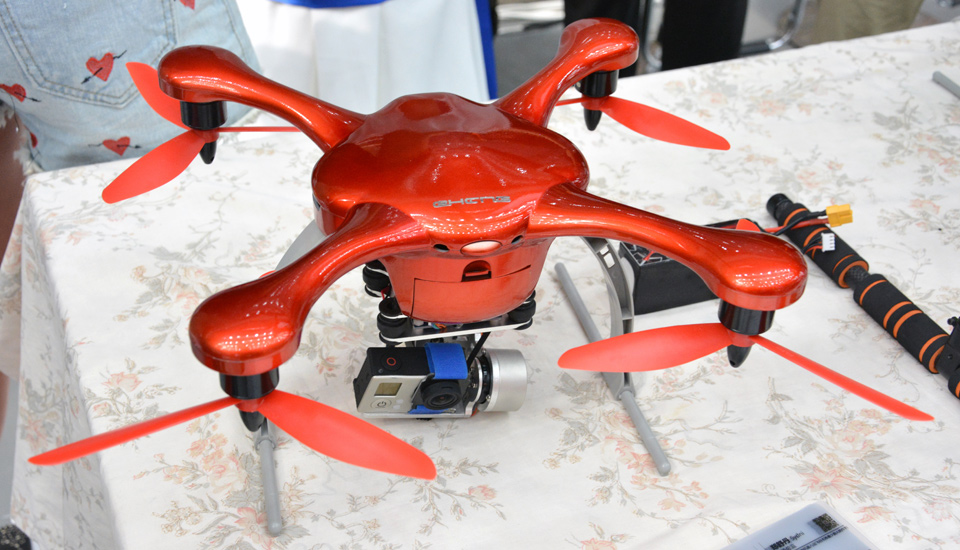 Just last week, a Congress committee associated Huawei with "credible allegations" of "bribery, corruption, discriminatory behavior and copyright infringement." The report, of course, was part of the Legislative branch's ongoing concern of the company's alleged threat to national security. Today Huawei may have finally caught a break from the US government, albeit a somewhat backhanded one: according to Reuters, a White House ordered review says that there is no evidence of spying on the Chinese company's part. The other side of the hand lands when the report cites exploitable vulnerabilities in Huawei hardware -- one person familiar with the White House review said it found the company's equipment "riddled with holes," and susceptible to hacking. Security complaints aside, the government's old spying concerns are still there. "China has the means, opportunity and motive to use telecommunications companies for malicious purposes," said the House Intelligence Committee's Dutch Ruppersberger, explaining to Reuters that both Huawei and ZTE has pinned their limited cooperation on restrictions from the local government. Even if Huawei hasn't been caught spying, it's still something it could do -- and that's reason enough, it seems, for the US government to avoid doing business with the firm.
Just last week, a Congress committee associated Huawei with "credible allegations" of "bribery, corruption, discriminatory behavior and copyright infringement." The report, of course, was part of the Legislative branch's ongoing concern of the company's alleged threat to national security. Today Huawei may have finally caught a break from the US government, albeit a somewhat backhanded one: according to Reuters, a White House ordered review says that there is no evidence of spying on the Chinese company's part. The other side of the hand lands when the report cites exploitable vulnerabilities in Huawei hardware -- one person familiar with the White House review said it found the company's equipment "riddled with holes," and susceptible to hacking. Security complaints aside, the government's old spying concerns are still there. "China has the means, opportunity and motive to use telecommunications companies for malicious purposes," said the House Intelligence Committee's Dutch Ruppersberger, explaining to Reuters that both Huawei and ZTE has pinned their limited cooperation on restrictions from the local government. Even if Huawei hasn't been caught spying, it's still something it could do -- and that's reason enough, it seems, for the US government to avoid doing business with the firm.
Update: White House spokesperson Caitlin Hayden told The Hill that no such investigation has been made, stating: "The White House has not conducted any classified inquiry that resulted in clearing any telecom equipment buyer as reported in Reuters," recalling the US government's exclusion of Huawei in the planning for America's interoperable wireless emergency network.
Filed under: Cellphones, Misc, Mobile
Reuters: White House finds no evidence of spying by Huawei, feels unsafe anyway (update: White House denies) originally appeared on Engadget on Wed, 17 Oct 2012 19:57:00 EDT. Please see our terms for use of feeds.
Permalink |
 Reuters, The Hill
Reuters, The Hill |
Email this |
Comments
 You might call your remote-controlled, quad-copter flying toy a "drone," but to the US government it's an "unmanned aircraft system", and it needs some red tape. Yes, the rumors were true: the Department of Transportation is creating a mandatory re...
You might call your remote-controlled, quad-copter flying toy a "drone," but to the US government it's an "unmanned aircraft system", and it needs some red tape. Yes, the rumors were true: the Department of Transportation is creating a mandatory re...
 You might call your remote-controlled, quad-copter flying toy a "drone," but to the US government it's an "unmanned aircraft system", and it needs some red tape. Yes, the rumors were true: the Department of Transportation is creating a mandatory re...
You might call your remote-controlled, quad-copter flying toy a "drone," but to the US government it's an "unmanned aircraft system", and it needs some red tape. Yes, the rumors were true: the Department of Transportation is creating a mandatory re...
 If you get a new drone this holiday season, you might have to register it with the US government. According to a report from NBC News, the US is ready to announce new requirements for consumers purchasing drones, the most notable of which is that y...
If you get a new drone this holiday season, you might have to register it with the US government. According to a report from NBC News, the US is ready to announce new requirements for consumers purchasing drones, the most notable of which is that y...








